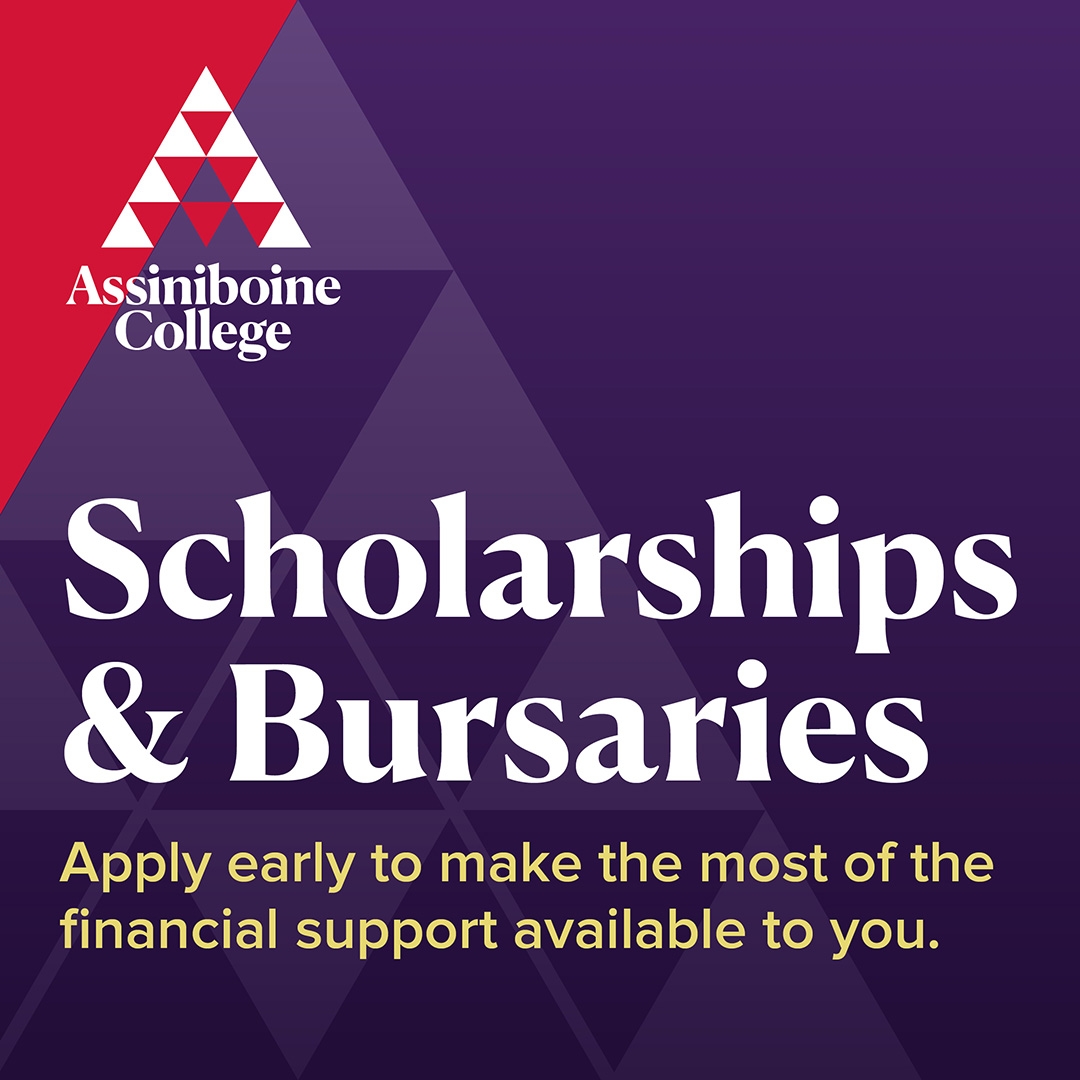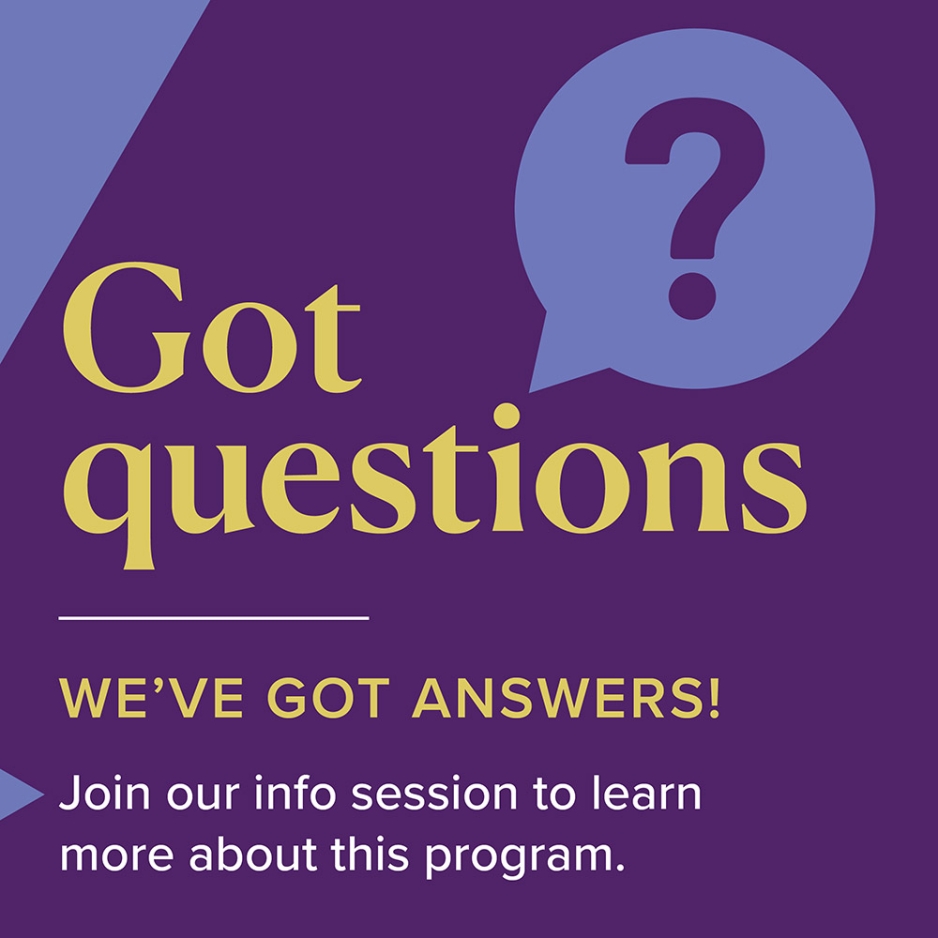Social Service Worker
Overview
Assiniboine’s two-year Social Service Worker diploma program prepares graduates for roles in community health centres, justice services, long-term care facilities, social service departments, schools, youth centres, outreach services, addiction centres and mental health services.
Program Learning Outcomes
- Develop respectful and collaborative professional and interpersonal relationships that adhere to professional, legal, and ethical standards aligned to social service work.
- Record information accurately and communicate effectively in written, digital, verbal and non-verbal ways, in adherence to privacy and freedom of information legislation, in accordance with professional and workplace standards.
- Integrate a practice framework within a service delivery continuum, addressing the needs of individuals, families and communities.
- Plan and implement accessible and responsive programs and services, recognizing the diverse needs and experiences of individuals, groups, families and communities, and meeting these needs.
- Examine current social policy, relevant legislation, and political, social, historical, and/or economic systems and their impacts for individuals and communities when delivering services to the user/client.
- Develop strategies and approaches that support individual clients, groups, families and communities in building the capacity for self-advocacy, while affirming their dignity and self-worth.
- Recognize the capacity for resilience and growth of individuals and communities when responding to the diverse needs of marginalized or vulnerable populations to act as allies and advocates.
- Develop strategies and approaches to implement and maintain holistic self-care as a member of a human service profession.
- Work with individuals, groups, families and their communities to ensure that service provider strategies promote social and economic justice, and challenge patterns of oppression, discrimination and harassment, and sexual violence with clients, coworkers and communities.
- Develop the capacity to work with Indigenous individuals, families, groups and communities while respecting their inherent rights to self-determine.
- Identify and address systemic barriers that produce ill-effects, developing appropriate responses using approaches such as trauma informed care practice.
Examples of what social services workers can do:
- Administer and implement a variety of social assistance programs and community services.
- Assess clients' relevant skill strengths and needs.
- Assist clients develop plans of action while providing necessary support and assistance.
- Assess and investigate eligibility for social benefits and refer clients to other social services or assist clients in locating and utilizing community resources.
- Participate in the selection and admission of clients to appropriate programs.
- Assist in evaluating the effectiveness of treatment programs by tracking clients' behavioural changes and responses to interventions.
Success Factors
You might be a good fit for this program if you would enjoy:
- Communicating with individuals from all backgrounds, including those who may be in distress or experiencing complex problems.
- Professional commitment to values and ethics, and to continuously developing professional competence.
- Thinking critically and creatively to find solutions to complex problems, often with limited resources.
- Understanding the challenges and experiences of the individuals and communities you work with, and show empathy and compassion in your interactions.
- Working collaboratively as part of a team.
- Working in an occupation that requires a deep understanding of the needs and experiences of individuals, families, and communities.
- Working with individuals, families, and communities to improve their well-being and quality of life.
A valid driver’s license and access to a vehicle is strongly recommended given the potential need to travel for practicum placement.
The industry and program environment require individuals to:
- Adhere to professional, legal, and ethical standards aligned to social service work.
- Be able to adapt to changing situations and work effectively in a variety of settings.
- Be able to manage their own emotions and respond appropriately to the emotions of their clients.
- Be patient and persistent in their work, as change may take time and involve setbacks.
- Be reliable, punctual, and regularly attend work.
- Establish and maintain clear and appropriate boundaries between personal and professional relationships, in accordance with professional, legal, and ethical standards of practice for the well-being of self, co-workers, other professionals and with individuals and communities as service users.
- Have an awareness and understanding of different cultures, beliefs, and lifestyles, and demonstrate cultural humility in their interactions with clients.
- Listening carefully, concentrating, and asking the right questions.
- Listening to direction and act on that accordingly.
- Recognize the diverse needs and experiences of individuals, groups, families and communities.
- Record information accurately and communicate effectively.
- Work in accordance with professional and workplace standards.
- Work within the boundaries and scope of practice in the role of the social service worker.
Admissions
Admission Requirements
- A complete Manitoba Grade 12 or equivalent
- English 40G/40S or equivalent with a minimum mark of 60%
- Current criminal record vulnerable sector check*
- Current child abuse registry check*
- Current adult abuse registry check*
If you received your education outside of Manitoba, please review the equivalent admission requirements: Interprovincial or International.
English is the language of instruction at Assiniboine. All applicants educated outside of Canada or in a country not on the test exempt list are expected to meet the English language proficiency requirements.
International Applicants Outside of Canada*
Program Continuation Requirements
While not admission requirements, all students in this program must be prepared to fulfill program continuation requirements. Students must obtain the following prior to their work placements in the program and these checks must be valid for the length of their practicum placements.
It is the student's responsibility to ensure they request, pay for, and obtain these checks in the necessary time frames. If you have specific questions about these program continuation requirements, please contact our School of Health & Human Services directly:
- Current Canadian criminal record vulnerable sector check
- Current adult abuse registry check
- Current child abuse registry check
In some situations, students with a criminal record may be unable to complete the program. Students listed on the Adult Abuse Registry or Child Abuse Registry may be unable to complete the program.
READY TO TAKE THE NEXT STEP IN YOUR EDUCATION JOURNEY?
Start your online application today and join Assiniboine College! View the Social Service Worker Program Application Checklist to help you submit a complete application for this program.
DON'T MEET ADMISSION REQUIREMENTS?
If you don’t meet admission requirements, visit our Centre for Adult Learning to upgrade courses.
Criminal Record Check/Abuse Registry Checks
Many agencies where students are placed for practicum experience require students to disclose convictions for any offenses. In some instances, applicants with a criminal record or listed on the Child Abuse Registry and/or Adult Abuse Registry may not be admitted to the program. If you fall into one of these categories, please contact the School of Health and Human Services prior to applying.
Careers & Connections
Career Opportunities
- Probations
- Child and family service agencies
- Addictions
- Mental health
- Schools
- Community group homes
- Food banks
- Resource centres
Connections
Assiniboine has a number of agreements with other colleges, universities and professional organizations, making it possible to apply credit taken at Assiniboine to programs at other institutions. For information on agreements, see Articulation Agreements.
Upon completion of this program, graduates will have the following certifications:
- SafeTALK
- ASIST Training
- Mental Health First Aid Training
Tools & Supplies
Program Checklists, Textbooks, and Supplies
ASSINIBOINE BOOKSTORE
Textbooks, supplies and uniforms may be purchased at the Assiniboine Bookstore at the Victoria Avenue East Campus. Booklists are available from your school office 30 days prior to the start date of your program.
Technology Requirements
Students in this program are required to bring their own laptop for use on-campus. The laptop must meet the technical needs outlined by the program. See Technology Requirements for detailed information.
Courses & Costs
Costs
Estimated Program Costs (Domestic students)
| Year 1 | Year 2 | |
|---|---|---|
| Credits | 61.0 | 61.0 |
| Tuition | $3,780 | $3,720 |
| Course Fees | $1,020 | $920 |
| Students' Association fees (including Health Premium) | $625 | $625 |
| Estimated textbooks, tools, and supplies | $640 | $1,760 |
All fees are estimated and subject to change without notice.
Estimated Program Costs (International students)
| Year 1 | Year 2 | |
|---|---|---|
| Credits | 61.0 | 61.0 |
| Tuition | $16,410 | $16,350 |
| Course Fees | $1,020 | $920 |
| Students' Association fees (including Health Premium) | $625 | $625 |
| Required Health Insurance | $825 | $825 |
| Estimated textbooks, tools, and supplies | $640 | $1,760 |
All fees are estimated and are subject to change without notice. All international students must purchase health insurance. The college adds this fee to your student account and then sends your name and fee to the insurance provider on your behalf.
For more information, visit the Fees and Charges page.
Courses
To graduate with a Social Service Worker diploma, students must successfully complete 123 academic credits and 12 practical credits. The minimum passing grade for each course is indicated on the course outline. Course offerings are subject to change and may vary by intake.
Year One Courses
| Title | Credits/CEUs | Elective | Distance | PLAR |
|---|---|---|---|---|
Applied Field Practice 1 (PRAC-0342)Prerequisites: COMP-0662 Technology in the Workplace, INDG-0012 Indigenous Persepectives, COMM-0431 Writing & Documentation Skills, COMM-0430 Interpersonal Communication Skills, PSYC-0001 Psychology |
1 credit(s) | No | No | No |
Canadian Governments (LAWG-0099)This course examines the current institutions and the politics of federal, provincial, and local governments in Canada. Students learn about the primary components of government structure, the political process and the interrelationship between the different levels of government. There is a focus on the impacts of Canadian legislation and government policies on Indigenous people and their governance. The course examines the relationship between government decision makers and different stakeholders outside of government, and the resulting political decisions which shape people's everyday lives and communities, as well as the social services they depend on. |
6 credit(s) | No | No | No |
College Foundations (PEDV-0356)This course improves students' ability to navigate the college experience and environment, including student's rights, roles, and responsibilities. In this course, students reflect on their skills, attitudes, and expectations and develop learning strategies to help them to become successful, resilient, and self-directed learners. The course covers topics such as success in online learning, time management strategies, learning strategies, assessment taking strategies, academic integrity, information and digital literacy, and wellness, among others. It integrates elements of student orientation. |
0 credit(s) | No | No | No |
Counselling Foundations (HMSV-0012)This course focuses on the basic skills used to interview clients in a counselling setting. It examines how the foundational values of respect, genuineness, and empathy support the helping relationship. Students develop skills in attending, listening, paraphrasing, responding, and effective questioning through participation in group activities and role plays. Students will also familiarize themselves with strengths-based practices and be introduced to common industry strategies such as brief counselling and motivational interviewing. |
6 credit(s) | No | No | No |
Fields of Practice (HMSV-0013)This course introduces students to the scope and dimensions of social service organizations and generalist practice. This course emphasizes the variety of roles that social service workers fill within the generalist framework of social services. Structural, strengths-based, systems and anti-oppressive theoretical perspectives are examined to prepare students for their own emerging practice. Students are introduced to foundational practice knowledge for a broad spectrum of employment fields including working with racialized and newcomer populations, women, violence, gender diversity, seniors, disabilities, child welfare practice, and healthcare settings. |
6 credit(s) | No | No | No |
Indigenous Perspectives (INDG-0012)This course examines issues and topics as they relate to the Canadian Indigenous experience from precontact to contemporary challenges. Course content includes colonization, Indigenous customs and beliefs, from First Nations, Metis, and/or Inuit perspectives. Examination of a variety of legislation and government policies will be undertaken. The residential school system and its impacts along with contemporary challenges including Treaties, Self- Government initiatives, Truth and Reconciliation, MMIWG and Bill C92 will be evaluated. Students will analyze the disparity between Indigenous and non-Indigenous systems, outcomes, and programming. |
6 credit(s) | No | No | No |
Interpersonal Communications (COMM-0430)Interpersonal communication is the study of theories and practice in verbal and non-verbal communication with a focus on interpersonal relationships. Emphasis is placed on the importance of communication, improving interpersonal relationships and increasing communication competence in everyday social exchanges. Topics include interpersonal language skills, listening and responding, conflict management, and verbal and non-verbal communication theories. Students will be given opportunities for skill building and practice in professional communication. |
6 credit(s) | No | No | No |
Life Cycle Development (HLTH-0315)Social service workers engage with people and families to provide direct services and support. This course introduces students to the complexities of human development across the lifespan and the dynamics of family systems. It covers the stages of growth from conception to old age, incorporating the physical, cognitive, social, spiritual, and emotional dimensions. Students learn to identify developmental milestones and understand the impact of family relationships and cultural traditions on individual development. Students examine the evolution of the family unit, exploring how family structures, boundary and attachment issues, and couple relationships affect children's functioning. Topics such as family scripts, scapegoating, grief, and the implications of divorce are discussed in the context of promoting functional family systems. Equipped with this knowledge, future social service workers are prepared to assess behaviors and support clients through a range of life experiences. |
6 credit(s) | No | No | No |
Psychology (PSYC-0001)A foundational understanding of psychology supports future Social Service Workers to implement programs that promote mental health and well-being across populations. Students will explore key psychological concepts and theories, such as the origins of psychology, major perspectives and concepts. The course content includes foundational concepts of psychology such as biological basis of behaviour, sensation and perception, theories of learning, cognition, personality, stress, social psychology and psychological dysfunction. Students will begin to integrate this knowledge with professional and ethical practices critical to client engagement, support, and advocacy. |
6 credit(s) | No | No | No |
Sociology (SOCI-0001)Social Service Workers must engage professionally and ethically with a diverse population of colleagues, collaterals, and service users. In order to do so, students need to have a solid understanding of diversity, social structures, and inequity. This course studies social behaviour in human groups. Students are introduced to foundational sociological theories and frameworks for analysis. Concepts such as culture, society, socialization, deviance, stratification and others are illustrated from a sociological perspective. We will discuss patterns of social interaction and how these patterns change over time and setting. Students will develop the foundational knowledge required for later development of advocacy for social justice. |
6 credit(s) | No | No | No |
Technology in the Workplace (COMP-0665)In this course, students master technology-based competencies indispensable in today's workplace. They manage files across local and cloud platforms and engage in electronic collaborations on these files using tools like Teams. Students develop proficiency in various Outlook capabilities to facilitate communication and coordination with clients, colleagues, and collaterals, reinforcing professional networking and communication skills. Students prepare reports using advanced functions of word processors and spreadsheets to communicate workplace information with clarity. These competencies culminate in the ability to deliver compelling multimedia presentations, aimed at achieving strategic goals and fostering meaningful engagement with clients, colleagues, and broader professional communities. |
6 credit(s) | No | No | No |
Writing & Documentation Skills (COMM-0431)Social Service Workers compose documents that inform critical decisions and have meaningful consequences in the lives of their clients and in service to their workplaces. They must demonstrate strong ethics and integrity in all written documentation - academically and professionally. This course develops critical thinking, reading, and writing skills required by students for success. The focus will be on practicing effective written and electronic communication skills including typical reports social service workers would complete in the field. |
6 credit(s) | No | No | No |
Year Two Courses
| Title | Credits/CEUs | Elective | Distance | PLAR |
|---|---|---|---|---|
Applied Field Practice 2 (PRAC-0343)Prerequisites: HMSV-0020 Trauma Informed Practice, HMSV-0021 Women and Gender Studies, PEDV-0395 Professional Practice, HSMV-0017 Non-Governmental Organizations, LAWG-0099 |
1 credit(s) | No | No | No |
Child Welfare (HMSV-0014)Prerequisites: HMSV-0020 Trauma Informed Practice, HMSV-0021 Women and Gender Studies |
6 credit(s) | No | No | No |
Co-occuring Disorders (HMSV-0015)Prerequisites: PSYC-0001 Psyhcology, HLTH-0312 Life Cycle Development |
6 credit(s) | No | No | No |
Group Facilitation (HMSV-0016)Prerequisites: HMSV-0012 Counselling Foundations, COMM-0430 Interpersonal Communications |
6 credit(s) | No | No | No |
Justice and Reconciliation (LAWG-0106)Prerequisites: INDG-0012 Indigenous Perspectives, LAWG-0099 Canadian Governments, COMM-0430 Interpersonal Communications |
6 credit(s) | No | No | No |
Non-Governmental Organizations (HMSV-0017)Prerequisites: COMP-0662 Technology in the Workplace, COMM-0431 Writing & Documentation Skills |
6 credit(s) | No | No | No |
Professional Practice (PEDV-0395)Prerequisite: HMSV-0020 Trauma Informed Practice |
6 credit(s) | No | No | No |
Social Determinants of Health (HMSV-0018)Prerequisite: HMSV-0013 Fields of Practice |
6 credit(s) | No | No | No |
Social Policy (HMSV-0019)Prerequisite: HMSV-0013 Fields of Practice |
6 credit(s) | No | No | No |
Trauma Informed Practice (HMSV-0020)Prerequisites: PSYC-0001 Psychology, INDG-0012 Indigenous Perspectives, HLTH-0312 Life Cycle Development, HMSV-0012 Counselling Foundations, COMM-0430 Interpersonal Communicaitons |
6 credit(s) | No | No | No |
Women and Gender Studies (HMSV-0021)Prerequisite: SOCI-0001 Sociology, HLTH-0312 Life Cycle Development |
6 credit(s) | No | No | No |




